Food waste is a big issue. For the UK alone the numbers seem almost too big to comprehend: more than 15m tonnes of edible food wasted each year at a cost of billions of pounds, enough to fill Wembley Stadium to the brim many times over. And that's before you consider the enormous amounts of energy and water required to grow, package, process, transport and cook grub that never gets eaten.
Faced with these figures, it can feel like we're standing at the foot of an insurmountable mountain. Waste was one of the key issues in the government's 2011 Foresight report on food sustainability and security, which stressed the need to do much more, much faster. So how do we tackle it?
Just as every epic expedition is made up of single steps, small changes can add up to a big improvement when they're scaled up to a national, or even global, level.
One of the biggest challenges with tackling the issue of edible produce wasted on farms is knowing the scale of the problem. It's not included in the government's official figures on food waste, although it's likely to be millions of tonnes. For farmers, this is also money down the drain.
One large-scale vegetable farmer we spoke to stressed the importance of making small cuts in waste across his entire enterprise. He likened it to the cyclist Dave Brailsford's "marginal gains" philosophy that took the British team to Olympic glory. Through these measures he's cut the proportion of carrots going to landfill from 10% to zero over the past decade.
Thanks to the addition of an on-site peeling and processing factory – as well as changing cosmetic standards by retailers – everything is pushed further up the food chain, with more veg going directly to consumers rather than ending up as animal food. Quick washing and chilling, along with innovations in packaging and store displays, also help to keep food fresher for longer, both on the supermarket shelf and in our fridges at home.
The use of satellite and robotic technology can also provide part of the solution, by ensuring that planting and harvesting is as accurate as possible. But inevitably some crops are left in the field, and the cost of labour doesn't make it worth going back to collect them.
Poor planning and back luck with the weather can also lead to produce left to moulder. To address this, a new volunteer movement called the Gleaning Network is linking with farmers to gather up this extra harvest.
We visited a pick-your-own fruit farm near Chorleywood, around 30 miles west of London, where a handful of volunteers were stripping a surfeit of juicy redcurrants and succulent worcesterberries from low bushes in the August sunshine. Due to the unusually warm weather, the strawberry harvest had finished early, and punters weren't turning up to pick redcurrants alone. Rather than being destined to rot on the branches, these unwanted berries were now destined for a smoothie-making social enterprise.
I had to question whether one small group of gleaners on one farm could really make an impact, but the movement is taking off in the UK and Europe, and the longer-established networks in the US gather millions of pounds of food each year.
Closer to home, there are other small seeds growing. We've seen domestic food waste falling in the UK for a few years – probably as a result of families feeling the financial squeeze – but we still waste more than 4m tonnes of edible food each year, at a cost of hundreds of pounds per household. Away from the media glamour of Jamie Oliver's new Money Saving Meals TV series and book, community projects such as Oxford's DinnerTime (pdf) are aiming to make a difference.
The idea is simple: local groups meet together once a month and chip in non-meat food that's past its best, along with contributions from local shops and food banks. The atmosphere is like a frantic episode of Ready Steady Cook, with vats of tasty lentil stew simmering alongside hearty beanburgers and veggie curry. Along the way, people learn cookery techniques such as knife skills, as well as picking up ideas for what to do with those bendy carrots and wilting cabbage festering at the bottom of the fridge.
As an extra motivation, the team weigh all the food that's been brought, and calculate the money, carbon and water they've saved by eating rather than binning it. Like the handful of gleaners gathering berries, DinnerTime currently caters for small community groups scattered across one county, but the organisers hope it will spread further.
Many of the ideas and projects I learned about while making today's episode of Costing the Earth seem so tiny in comparison to our food waste mountain that it's hard to see how they can make any dent, yet it does feel like attitudes are changing. A larger cultural shift is on the way, with new food waste reduction projects springing up across the world at a ferocious pace, and the issue rapidly rising up the public and political agenda.
Cutting waste to save money may be a powerful motivator for businesses and families, but as a global society, we simply cannot afford – financially, environmentally or morally – to keep wasting perfectly good food at our current rate. Any effort, however small, has got to be a step in the right direction.
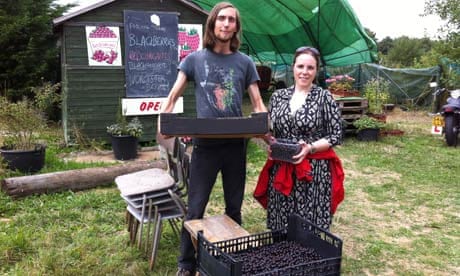
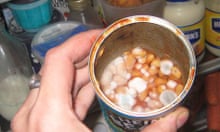
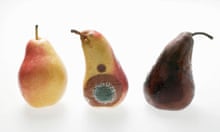
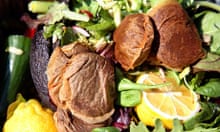
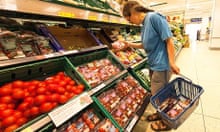
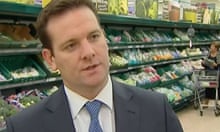
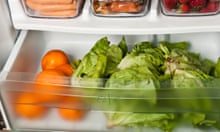

Comments (…)
Sign in or create your Guardian account to join the discussion